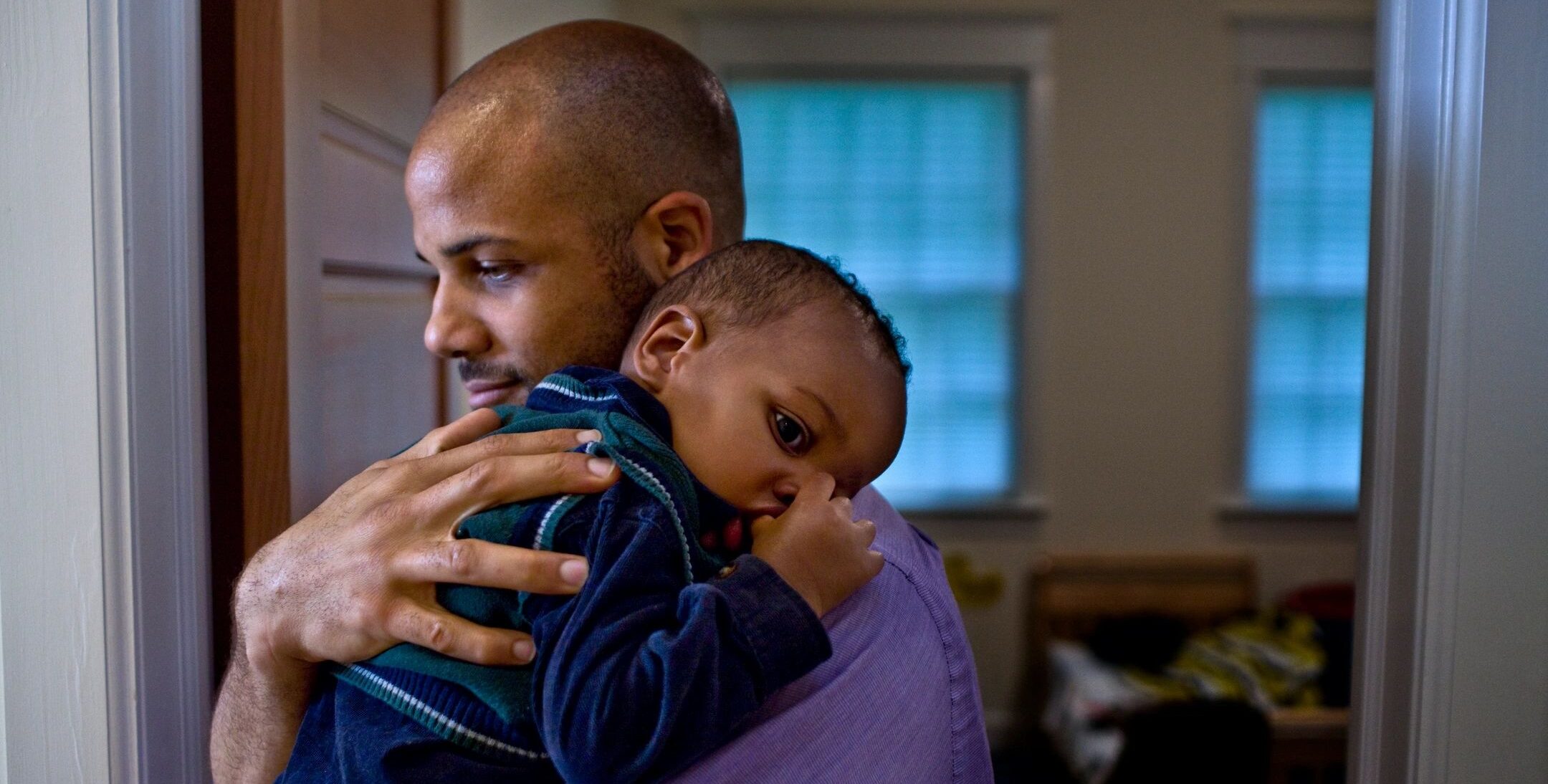Early-life stress takes many forms, including physical, emotional and sexual abuse, or neglect. A widespread misconception is that young children are inherently “resilient” and less affected by these stressors. However, evidence consistently suggests otherwise. For instance, children exposed to parental conflict often exhibit higher levels of the stress hormone cortisol, which can disrupt critical aspects of development such as play and sleep (Flinn & England, 1995). Addressing early-life stress is not only vital but also highlights the importance of sensitive fathering.
How Early-Life Stress Affects Development
Chronic exposure to adverse events, even seemingly minor ones like overhearing parental arguments, can accumulate and compound over time, profoundly impacting brain development. Research has shown that prolonged exposure to stress can alter structures in the brain, including the hippocampus and amygdala, which are critical for emotional processing and stress regulation (Smith & Pollak, 2020). These changes not only affect children’s immediate ability to cope but can also increase their risk of mental health challenges such as anxiety and depression later in life.
The Importance of Sensitive Fathering
Sensitive fathering can play a crucial role in helping children manage early-life stress and build resilience. Fathers who engage in sensitive fathering provide emotional support, foster a sense of security, and model effective stress regulation. By being attentive and responsive to their children’s emotional needs, fathers can help counteract the harmful effects of early stress.
Sensitive Fathering During Maternal Depression
Maternal depression can create an additional layer of stress in a child’s life. Sensitive fathering becomes particularly important in these situations, as fathers can provide emotional balance and stability. When a mother is struggling with depression, children may face increased risks of emotional insecurity (Phua et al., 2020). A father who practices sensitive fathering can step in to mitigate these risks by being a consistent source of warmth and support (Vakrat et al., 2018). For example, fathers can create positive, nurturing experiences such as spending quality time together, validating emotions, and modeling resilience in challenging situations. These actions not only benefit the child but also support the mother by reducing the overall emotional strain on the family.
Why Sensitive Fathering Matters in Stress Regulation
While both parents play an essential role in a child’s development, fathers often bring unique interactions and perspectives to parenting. Sensitive fathering helps children build emotional resilience by creating an environment where they feel heard, understood, and valued. When fathers respond calmly to challenging situations and validate their children’s feelings, they model effective stress management and emotional regulation.
Studies also indicate that positive father-child relationships—rooted in sensitive fathering—are associated with better mental health outcomes, improved self-esteem, and lower cortisol levels in children. These benefits can significantly buffer the harmful effects of early stress.
Practical Ways Fathers Can Embrace Sensitive Fathering
Fathers who want to support their children’s emotional development can take simple but impactful steps:
- Active Listening: Pay attention to your child’s emotions and acknowledge their feelings without judgment.
- Be Present: Dedicate time to connect with your child through play, reading, or simply being together without distractions.
- Practice Calmness: Model stress management by staying composed during conflicts or challenging moments.
- Encourage Expression: Create a safe space for your child to share their thoughts and emotions freely.
- Support the Co-Parent: Work as a team with your partner to create a stable, supportive environment for your child. This is especially important if your partner is experiencing mental health challenges, such as postpartum depression.
Reflection for Readers
References
Mark V. Flinn and Barry G. England, Childhood Stress and Family Environment, Current Anthropology 1995 36:5, 854-866
Smith, K.E., Pollak, S.D. Early life stress and development: potential mechanisms for adverse outcomes. J Neurodevelop Disord 12, 34 (2020). https://doi.org/10.1186/s11689-020-09337-y
Vakrat A, Apter-Levy Y, Feldman R. Sensitive Fathering Buffers the Effects of Chronic Maternal Depression on Child Psychopathology. Child Psychiatry Hum Dev. 2018 Oct;49(5):779-785. doi: 10.1007/s10578-018-0795-7. PMID: 29468357.
Phua DY, Kee MZL, Meaney MJ. Positive Maternal Mental Health, Parenting, and Child Development. Biol Psychiatry. 2020 Feb 15;87(4):328-337. doi: 10.1016/j.biopsych.2019.09.028. Epub 2019 Oct 16. PMID: 31839213.














